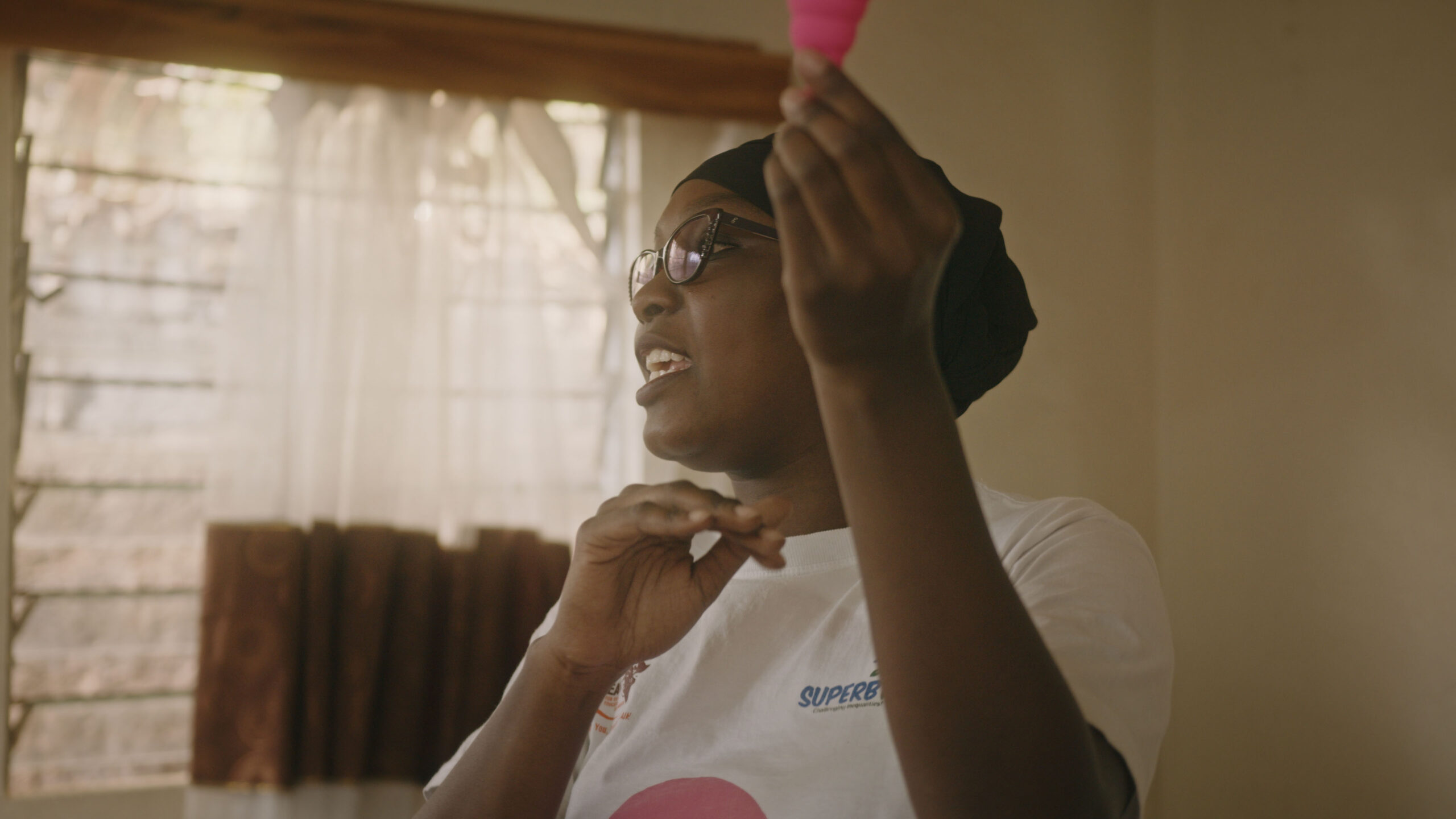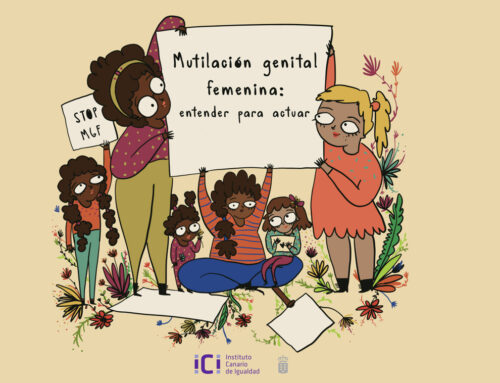Last year, we had the privilege of meeting with Yasmin, a feminist, gender activist, and advocate for menstruation. Through her tireless commitment and feminist spirit, she has proven to be a driving force in promoting menstrual hygiene and overall health for women and girls in Kibera, Nairobi, Kenya.
This interview discusses the existing menstrual gap and her organization’s work.
Q. Please introduce yourself and explain your organization’s work promoting menstrual hygiene.
My name is Yasmin Mohammed Nassur. I am a feminist, gender activist, menstrual advocate, and founder and executive director of the SUPERB Community-Based Organization. We are a feminist women-led organization based in the informal settlement of Kibera in Nairobi.
Our vision is an inclusive society that values and supports the full participation of women and girls in development. One of our thematic areas of interest is menstrual health within sexual and reproductive health and rights.
We facilitate menstrual health sessions, distribute menstrual products, raise awareness in the community about menstrual hygiene, and most importantly, engage in menstrual health advocacy activities.
We are the first organization in the history of Kibera to innovate a sanitary pad dispenser using a used water jerrycan. Later on, we attracted development partners who supported us with a digitized sanitary pad dispenser.
Q. How does your organization engage in awareness and addressing menstrual hygiene issues throughout the year, considering that International Menstrual Hygiene Day is celebrated on March 28th?
Throughout the year, we have been raising awareness in the community about menstrual health, distributing sanitary pads, and conducting advocacy campaigns to urge the government to improve policy implementation and allocate more budget for sanitary pads.
We started a petition demanding that the government provide free sanitary pads and allocate more resources for menstrual health management.
For World Menstrual Hygiene Day, SUPERB CBO is organizing the third edition of the menstrual cycling event, scheduled for today, May 28th, 2023, in Kibera, Nairobi. The main objective of Menstrual Hygiene Day is to build a world where no one is limited by menstruation in the year 2030. To achieve this, SUPERB and its partners will cycle through the informal settlement of Kibera with the aim of breaking taboos and silence around menstruation, addressing stigma and menstrual exclusion, debunking myths, recognizing and honoring menstrual advocates, raising awareness, and fundraising for quality menstrual products.
Q. What challenges do girls face when they come to your organization seeking support regarding menstrual hygiene?
Some challenges include a lack of access to essential menstrual hygiene products, limited information about menstrual health, lack of proper sanitation and safe spaces for changing, lack of water for hygiene, infections, and diseases they cannot treat due to their impoverished situation. The girls are in a compromising position where they must choose between food and sanitary pads. They use unsanitary materials that harm their reproductive system and overall health.
Q. How is the menstrual period perceived in Kenyan society? Is it normalized, or is there still a stigma surrounding it?
Menstruation is still considered taboo and shameful in Kenyan society. It has not been fully normalized. People who menstruate face difficulties and experience embarrassing moments during their periods because the community still believes in harmful and regressive cultural practices that put the lives of menstruating individuals at risk.
Q. What are the consequences or challenges girls who lack access to adequate menstrual products face?
They end up missing classes; some drop out of school, and others engage in transactional sex in exchange for menstrual products, which leads to unwanted pregnancies. Some go to the extent of resorting to unsafe abortions on the streets, which sometimes leads to death.
Some challenges include stress, anxiety, depression, and even suicide. We have some cases infections resulting from leaving blood-soaked pads for extended periods, exposing them to bacterial infections. We have a case of endometriosis, and the girl does not have the resources to pay for her medication. At SUPERB, we have been able to support her by providing sanitary pads as she experiences heavy bleeding/menstruation.
Q. Unfortunately, menstrual hygiene is not just a problem in Kenya. Can you provide information about the global context and the challenges girls and women worldwide face regarding menstrual hygiene?
The lack of proper policy framework implementation contributes to menstrual poverty. When menstruate individuals do not have access to appropriate materials, facilities, and products during their menstruation, it affects their social, political, and economic aspects of life, leading to underdevelopment and preventing us from achieving gender equality.
States need to eliminate value-added tax on menstrual products and repeal taxes on imported materials so that menstruating individuals can easily access menstrual products. This action will help address some of the existing challenges, such as the accessibility of menstrual products, allowing us to ensure that menstruating individuals have access to these products.
Q. Why is it important to consider the menstrual gap as a feminist issue? How does addressing menstrual hygiene contribute to gender equality and women’s empowerment?
It is important to consider the menstrual gap as a feminist issue because feminism dismantles the systems and power structures that make oppressive decisions and policies that violate women and girls’ rights. Feminism challenges patriarchy and allows women and girls to thrive by accessing proper knowledge, information, and menstrual products.
When women have access information about menstrual health, proper menstrual products, facilities, and services, they can meaningfully participate in social, political, and economic activities. This enables us to achieve sustainable development goals, particularly gender equality. By effectively addressing the priority needs of women and girls, we can promote gender equality in various spheres.
Q. How can women-led organizations working to improve the safety of women and girls collaborate and work together more effectively?
Catalyzing collective action and establishing partnerships with like-minded organizations, mobilizing resources will allow us to build an inclusive and safe environment for women and girls to pursue opportunities and reach their full potential.




Leave A Comment